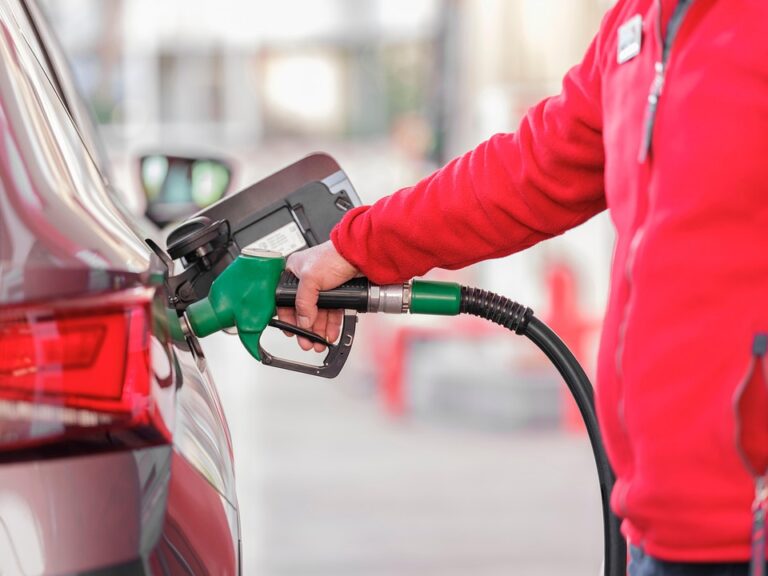Fueling the Future: The Evolving Landscape of Diesel and Petrol Vehicles
The automotive industry is currently navigating a pivotal transition that centers around one critical question: Diesel vs. Petrol, which will fuel the future of transportation? As environmental consciousness rises and innovation accelerates, the landscape for diesel and petrol vehicles is changing rapidly. This article explores the evolving dynamics between these two fuel types, shedding light on their respective advantages, challenges, and how they align with the future of sustainable mobility.
Understanding Diesel and Petrol Vehicles
The Basics of Diesel and Petrol
Diesel and petrol (gasoline) represent two distinct forms of fuel for internal combustion engines. Diesel engines are known for their efficiency and torque, making them a favorite for commercial use and long-haul transportation. On the other hand, petrol engines are favored for their performance and smoother operation, typically found in passenger vehicles.
The Popularity Contest: Diesel vs. Petrol
While traditionally, diesel engines have dominated the commercial sector due to their fuel efficiency and durability, petrol vehicles have retained a significant share in consumer markets, appealing to drivers seeking a balance of performance and cost-effectiveness. The choice between diesel and petrol often boils down to individual needs, driving habits, and environmental considerations.
Current Trends in Diesel and Petrol Vehicles
Emissions Regulations and Environmental Impact
One of the most significant influences on the diesel vs. petrol debate is the tightening emissions regulations imposed by governments worldwide. Diesel engines, while efficient, historically emitted higher levels of nitrogen oxides (NOx) and particulates compared to petrol engines. This has led to increased scrutiny and the implementation of stricter emissions standards, influencing manufacturers to innovate for cleaner diesel options.
The Electrification Movement
With the global push towards electric vehicles (EVs), diesel and petrol vehicles face increasing competition. The rise of electric mobility not only promises lower emissions but also challenges the traditional advantages of internal combustion engines. This evolution sparks a critical examination: Can diesel and petrol vehicles maintain relevance in an electrified future?
Advantages and Disadvantages of Diesel Vehicles
Advantages of Diesel
- Fuel Efficiency: Diesel engines generally have a higher fuel economy, enabling longer distances on a single tank.
- Torque and Power: Diesel engines offer superior torque, making them ideal for heavy-duty applications and towing.
- Longevity: Diesel vehicles often have longer lifespans due to their robust construction.
Disadvantages of Diesel
- Emissions Concerns: Diesel engines can produce more harmful emissions, raising environmental concerns and compliance issues.
- Higher Initial Costs: Diesel vehicles often come with a higher price tag, which may deter some buyers.
- Fuel Availability: Depending on the region, diesel fuelling stations may be less accessible than petrol stations.
Exploring the Benefits and Downsides of Petrol Vehicles
Advantages of Petrol
- Performance: Petrol engines offer quicker acceleration and greater refinement, appealing to enthusiasts and everyday drivers.
- Lower Initial Investment: Generally, petrol vehicles are more affordable upfront compared to their diesel counterparts.
- Widespread Infrastructure: Petrol stations are typically more prevalent, making refueling convenient.
Disadvantages of Petrol
- Fuel Economy: Petrol engines may consume more fuel than diesel engines, resulting in higher running costs.
- Durability: Petrol engines may wear more quickly under heavy loads, potentially leading to more frequent repairs.
The Road Ahead: Future Prospects and Innovations
The Role of Hybrid and Alternative Fuels
The automotive industry is also pivoting towards hybrid technologies that combine both diesel and petrol engines with electric components. This hybrid approach allows for reduced emissions while maintaining the benefits of conventional fuel sources.
Consumer Preferences and Market Shifts
Consumer preferences are changing, with an increasing number of buyers opting for greener alternatives. As awareness of climate change and the carbon footprint of vehicles becomes more prevalent, the diesel vs. petrol discussion is evolving towards embracing sustainable solutions. Moreover, manufacturers are investing in innovative technologies to align internal combustion engines with environmentally friendly practices.
Conclusion: Navigating the Future of Diesel and Petrol Vehicles
As the automotive industry continues to innovate and adapt to regulations and consumer preferences, the question of diesel vs. petrol vehicles remains crucial. While both fuel types bring their unique advantages and challenges, the ultimate decision will hinge on individual drivers’ needs, environmental impact, and available technology.
The road ahead is clearly marked by innovation and sustainability. While diesel and petrol vehicles are not disappearing anytime soon, their roles are undoubtedly evolving. Adopting hybrid technologies and alternative fuels will shape the landscape of transportation in the coming decades, proving that the future may not be about choosing one fuel over the other but rather learning how to coexist and innovate for a cleaner, more efficient world.
For more insights into the automotive world and the latest trends in fuel technologies, be sure to check out our other articles and stay informed on the future of transportation.


